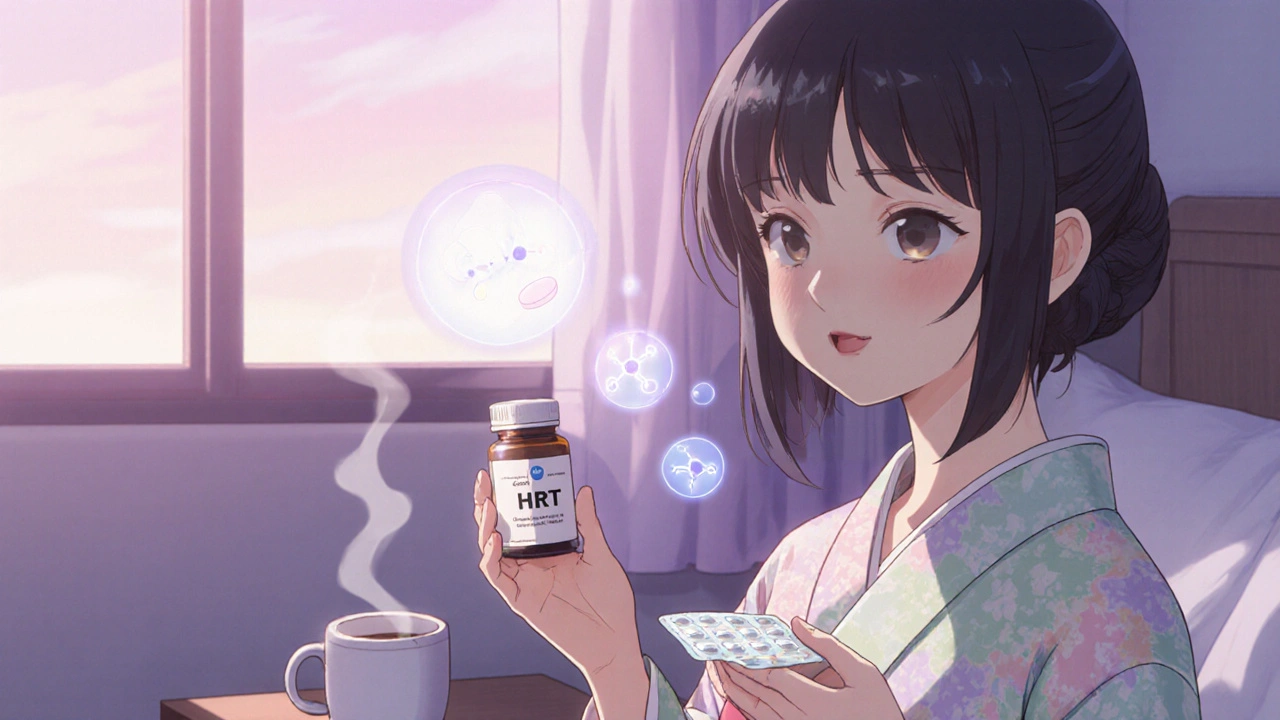HRT Medication Safety: What You Need to Know Before Starting
When you hear HRT medication safety, Hormone Replacement Therapy used to manage menopause symptoms and hormonal imbalances. Also known as hormone therapy, it's not a one-size-fits-all solution—it’s a tool that works differently for every body. Millions use it to ease hot flashes, sleep issues, or bone loss, but safety isn’t just about avoiding side effects. It’s about matching the right type, dose, and duration to your health history, age, and personal risks.
Not all HRT is the same. Estrogen, a key hormone in HRT that helps regulate menstrual cycles and bone density is often paired with progesterone, a hormone added to protect the uterus from thickening when estrogen is used. Skip progesterone if you’ve had a hysterectomy, but if you haven’t, skipping it raises your risk of uterine cancer. That’s not a guess—it’s backed by decades of clinical data. And while some think HRT is safe for everyone under 60, the truth is more layered. Women with a history of blood clots, breast cancer, or liver disease may need to avoid it entirely. Even if you’re healthy now, your family history, weight, and smoking habits change the math.
Side effects aren’t just headaches or bloating. Some people get mood swings, breast tenderness, or spotting. Others face more serious issues: increased risk of stroke, heart disease, or blood clots—especially in the first year. That’s why doctors don’t just hand out prescriptions. They check your blood pressure, review your lab work, and talk about your goals. Is this for short-term relief? Or long-term bone protection? The answer changes the plan. And if you’re thinking about starting HRT after 60, the risks shift again. Timing matters more than you think.
You’ll find real-world comparisons here—not theory, not ads. Posts cover how HRT stacks up against alternatives like black cohosh or low-dose antidepressants for hot flashes. You’ll see what doctors actually watch for during follow-ups, how to spot warning signs early, and why some women stop HRT within a year—not because it didn’t work, but because the risks felt too high. There’s no magic bullet. But with the right info, you can make a decision that fits your life, not just your symptoms.
Learn how hormone replacement therapy interacts with common meds, from anticonvulsants to herbal supplements, and get practical steps to stay safe.

